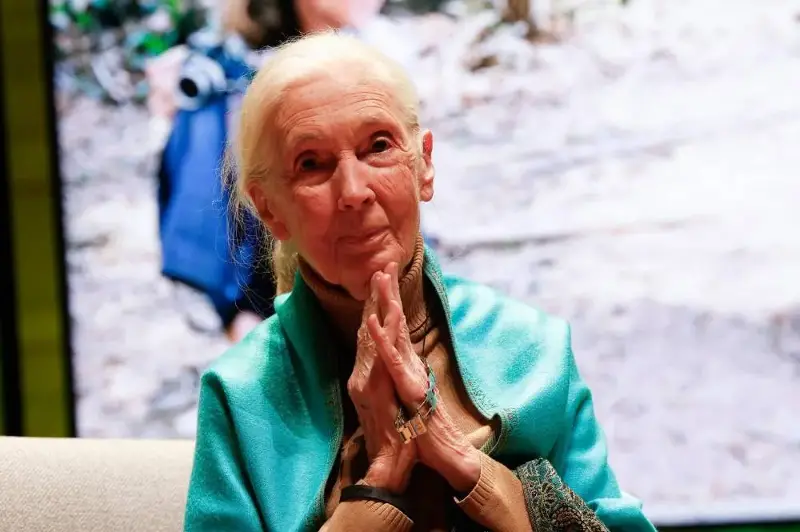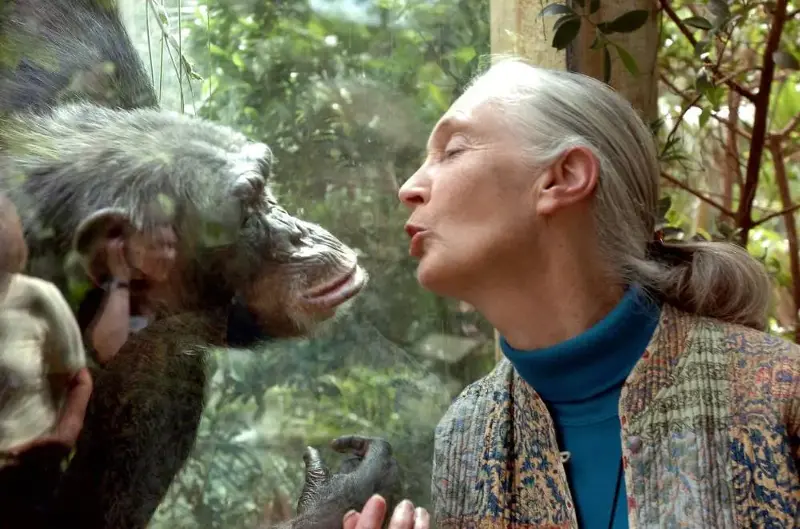
SHAH ALAM - Conservationist Jane Goodall, the world-renowned primatologist whose groundbreaking observations forever changed the way humanity understands its closest relatives, has died aged 91.
Her institute confirmed that her death was from natural causes, and happened while she was in California on a speaking tour of the United States.
In a statement, the institute said her discoveries "revolutionised science" and praised her as "a tireless advocate for the protection and restoration of our natural world."
Tributes have poured in from across the globe. The United Nations said it mourned the loss of Goodall, recalling how she "worked tirelessly for our planet and all its inhabitants, leaving an extraordinary legacy for humanity and nature."
Greenpeace described itself as "heartbroken," with its UK co-executive director Will McCallum calling her "one of the true conservation giants of our time," whose legacy lies not just in science, but in sparking a global movement to protect nature and nurture hope.
Born in 1934 and raised in London, Goodall’s fascination with animals began in childhood, inspired by books like The Story of Dr Doolittle and Tarzan.
Her life changed in her mid-twenties when she met leading primatologist Louis Leakey while staying on a friend’s farm in Kenya. Despite having no qualifications, Leakey recognised her potential and arranged her first research trip to Tanzania’s jungles in 1960.
There, she made a discovery that would challenge the very foundations of science: she observed a chimpanzee she named David Greybeard using a stick to extract termites from a mound.

Until that moment, tool use had been considered a uniquely human trait. Her findings reshaped evolutionary science and sparked a new understanding of the emotional and social complexity of primates.
Her work gained global attention, gracing the cover of National Geographic in 1965, and was later brought to life in a television documentary narrated by Orson Welles, showing her tenderly playing with young chimps.
Goodall revealed that chimpanzees formed strong family bonds and even waged territorial wars, observations that both amazed and unsettled the scientific community.
Her approach, marked by empathy - naming the animals she studied and calling them "my friends" was unconventional and drew criticism from some, mostly male, scientists.
Yet she persevered, eventually completing a PhD without ever having obtained an undergraduate degree.
Beyond the research, Goodall became an activist. She fought to free chimpanzees from zoos and medical labs and later, as forests vanished and climates shifted, she turned her voice to the urgent calls for global action on habitat loss and climate change.
In 1977, she founded the Jane Goodall Institute, which remains dedicated to protecting chimpanzees and supporting conservation projects worldwide.
Her contributions were honoured globally where she was made a Dame in 2003, and in 2025 received the United States Presidential Medal of Freedom.
Goodall’s life was defined by tireless travel. In 2022, she told The Times that she had not slept in the same bed for more than three weeks since 1986.
True to that spirit, she worked until the very end, just a week ago she was interviewed on stage in New York, and she had been scheduled to speak again at a sold-out event in California on Oct 3.
